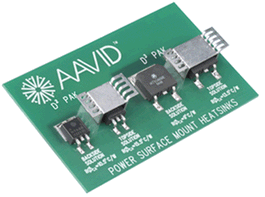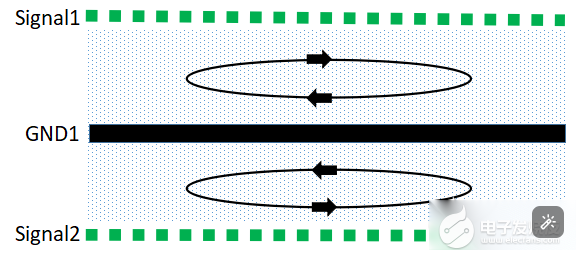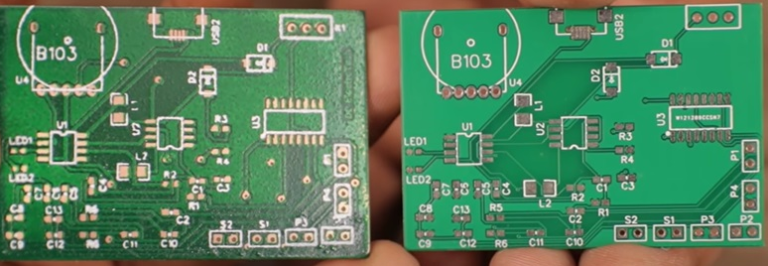Essential Circuit Board Manufacturing Equipment for Success
Key Takeaways
In the world of pcb manufacturing, having the right tools is essential for success. From your very first steps as an entrepreneur in the pcb manufacturing business, you will realize that investing in high-quality equipment can significantly influence your operational efficiency and product outcomes. Notably, automated stencil printers enhance your ability to apply solder paste precisely, paving the way for immaculate layering on boards. As you explore partnerships with various pcb manufacturing companies, understanding the role of advanced pick-and-place machines will allow you to achieve maximum efficiency while minimizing human error during assembly. These tools help streamline processes and speed up production cycles, ultimately affecting the overall pcb manufacturing cost positively.
Furthermore, incorporating high-performance reflow ovens into your workflow ensures that connections attained during soldering maintain their integrity and quality. Such equipment is crucial in assuring that your final product meets industry standards. Regular use of inspection equipment for quality checks is fundamental in addressing any potential defects before they escalate into costly issues. Moreover, mastering chemical processing tools aids in efficiently removing unwanted materials from surfaces, ensuring a clean product ready for further processing. By carefully selecting and utilizing reliable drilling machines, you can create consistent connections that build strong boards.
As you navigate through the complexities of circuit board creation, adhering to cleanroom standards enhances not just efficiency but also fortifies your reputation in the competitive landscape of pcb manufacturing companies. In essence, integrating essential tools and adhering to best practices will be pivotal to scaling your business successfully while managing production costs effectively.
Essential Tools for Circuit Board Manufacturing
In the world of pcb manufacturing, having the right tools is vital for achieving efficiency and high-quality results. Whether you are part of pcb manufacturing companies or running your own pcb manufacturing business, investing in essential equipment can significantly impact your production capabilities.
For starters, automated stencil printers are indispensable in ensuring precision during the printing process. These machines facilitate accurate solder paste application, minimizing errors and optimizing the performance of your finished product. When connected to advanced software, these printers not only enhance productivity but also help reduce the overall pcb manufacturing cost by streamlining operations.
Next, consider the role of pick-and-place machines in your production line. These tools excel at positioning components onto the circuit boards swiftly and accurately. By leveraging the latest technology, you can maximize throughput while maintaining exceptional quality standards. This equipment is particularly beneficial for companies looking to scale their operations without compromising on quality.
In addition to these critical machines, reflow ovens are essential for ensuring strong and reliable connections during soldering processes, which is crucial for long-lasting circuit boards. The ability to monitor and adjust temperature profiles allows manufacturers to achieve optimal results consistently.
For a structured overview, consider this table that summarizes key tools along with their impact on production:
| Equipment Type | Purpose | Impact |
|---|---|---|
| Automated Stencil Printers | Accurate solder paste application | Reduces errors, enhances productivity |
| Pick-and-Place Machines | Component placement | Maximizes throughput |
| Reflow Ovens | Soldering connections | Ensures strong connections |
In conclusion, understanding and investing in these essential tools can substantially improve your operation within the pcb manufacturing field. Not only do they elevate quality standards but they also align with your business objectives in delivering reliable products to meet market demands.
Automated Stencil Printers: Key to Precision
When it comes to pcb manufacturing, the role of automated stencil printers cannot be overstated. These machines are vital for applying solder paste accurately onto circuit boards, ensuring that each component is affixed with the right amount of material. Precision is critical in this process, as a well-calibrated printer minimizes the risk of defects that could lead to failures in electronic devices. As you explore different pcb manufacturing companies, you might notice that those employing advanced stencil printers often achieve higher production rates while maintaining superior quality standards. Understanding their functionality can also greatly influence your decisions on pcb manufacturing cost—investing in more sophisticated equipment may initially seem daunting but can yield long-term savings through enhanced efficiency and reduced waste. Furthermore, as part of your pcb manufacturing business, integrating these printers into your production line can significantly elevate your reputation among clients seeking reliability and quality in their electronic products. Thus, recognizing the importance of automated stencil printers is essential for anyone aiming for success in today’s competitive landscape of circuit board production. For more insights on effective pcb solutions, consider visiting Andwin PCB.
Pick-and-Place Machines: Maximizing Efficiency
In the realm of pcb manufacturing, pick-and-place machines are pivotal for maximizing efficiency and precision. These machines automate the placement of electronic components onto a circuit board, significantly reducing the time taken compared to manual methods. When choosing a pick-and-place machine, consider factors like speed, accuracy, and compatibility with various component types. Incorporating this equipment can lead to lower pcb manufacturing costs, allowing you to offer more competitive pricing from your pcb manufacturing business. Moreover, the rise in pcb manufacturing companies adopting automated solutions highlights the trend toward increased productivity and consistency in production quality.
“Automating the pick-and-place process allows for scalability and improved throughput in your operations.”
This advanced equipment not only increases production rates but also minimizes human error, enhancing overall product quality. By investing in high-quality pick-and-place machines, you can streamline your assembly line, which is essential for meeting market demands and achieving business growth in the competitive world of pcb manufacturing. Maintaining an optimal balance between machine efficiency and production capabilities is key to thriving in today’s economy.
Reflow Ovens: Ensuring Quality Connections
Reflow ovens play a pivotal role in ensuring the quality of connections during the pcb manufacturing process. These machines are designed to heat the printed circuit boards (PCBs) to precise temperatures, allowing solder paste to melt and create strong, reliable joints between components and the board itself. When considering pcb manufacturing companies, it’s essential to recognize that the accuracy of reflow ovens can significantly affect the overall pcb manufacturing cost. High-quality ovens provide consistent thermal profiles that help avoid defects such as cold solder joints or insufficient solder coverage, which can lead to reduced performance or even component failure. In your pcb manufacturing business, investing in a reliable reflow oven not only enhances production efficiency but also elevates product quality, ultimately promoting customer satisfaction and minimizing returns. By maintaining proper temperature control and airflow management within your reflow oven, you can ensure that every connection made meets stringent industry standards, thus reinforcing your reputation in the competitive landscape of pcb manufacturing.
Inspection Equipment: Maintaining Production Standards
In pcb manufacturing, the role of inspection equipment cannot be overstated, as these tools are critical in ensuring that your products meet the required quality standards. Whether you are working with a small-scale pcb manufacturing business or operating as one of the larger pcb manufacturing companies, integrating advanced inspection solutions will help you detect any discrepancies early in the production process. Utilizing automatic optical inspection (AOI) machines allows for rapid evaluation of solder joints and component placement, significantly reducing human error and enhancing productivity. Moreover, X-ray inspection systems are invaluable when inspecting hidden solder joints, ensuring that internal connections remain reliable over time. By investing in high-quality inspection equipment, you can minimize the pcb manufacturing cost associated with defects and rework, ultimately leading to improved customer satisfaction and loyalty. This proactive approach to quality control is not just about maintaining standards but also about upholding your reputation in a competitive market where innovation and precision are paramount. As you continue to refine your manufacturing processes, remember that effective inspection solutions will not only streamline operations but will also play a pivotal role in sustaining growth within your pcb manufacturing endeavors.
Chemical Processing Tools: Unwanted Material Removal
In the realm of pcb manufacturing, effective removal of unwanted materials is crucial for achieving high-quality products. Chemical processing tools play a vital role in this aspect, ensuring that residues from etching and drilling processes are eliminated, which is essential for the integrity of your circuit boards. These tools include specialized cleaners and etchants that not only enhance the cleanliness of the PCB surface but also improve adhesion for subsequent layers in the manufacturing process. When dealing with pcb manufacturing companies, understanding the chemical processing equipment they utilize can provide insights into their production standards and reliability. The reduction of defects through precise chemical processing directly influences pcb manufacturing cost, as it minimizes rework and rejects, contributing to a more efficient pcb manufacturing business model. Thus, investing in high-quality chemical processing tools is an essential strategy for your success in managing clean and efficient circuit board production.
Drilling Machines: Creating Reliable Connections
In the realm of pcb manufacturing, drilling machines play a pivotal role in establishing reliable connections on circuit boards. These machines are responsible for creating precise holes that accommodate various components, ensuring optimal functionality and electrical performance. The accuracy of drilling is fundamental, as even the slightest deviation can lead to costly errors in the manufacturing process, impacting both the pcb manufacturing cost and overall quality. When you invest in high-quality drilling equipment, you not only improve your production efficiency but also enhance the reliability of your final products. This is particularly essential for pcb manufacturing companies competing in today’s fast-paced market where precision is paramount. As you consider expanding your pcb manufacturing business, focusing on state-of-the-art drilling technology can significantly influence your success. Furthermore, regular maintenance and calibration of these machines ensure consistent performance, ultimately leading to fewer defects and a stronger reputation in the marketplace. Therefore, prioritizing advanced drilling solutions can be a game changer in delivering high-quality circuit boards that meet industry standards.
Cleanroom Standards: Enhancing Manufacturing Integrity
Maintaining a high standard of cleanliness in your pcb manufacturing facility is vital for ensuring product integrity and reliability. Adhering to strict cleanroom standards minimizes the risk of contamination, which can severely affect the performance of circuit boards. Whether you operate a small pcb manufacturing business or are part of larger pcb manufacturing companies, implementing effective cleanroom practices can significantly reduce defects and improve product quality. This involves not just regular cleaning protocols but also ensuring that the materials and equipment used, such as automated stencil printers and pick-and-place machines, are maintained in a clean environment. By prioritizing cleanliness, you can effectively manage pcb manufacturing costs, as a well-maintained facility prevents costly reworks and ensures that production runs smoothly. Utilizing advanced filtration systems and enforcing strict personnel protocols further enhances the integrity of your manufacturing process, ultimately leading to better customer satisfaction and trust in your products.
Conclusion
In summary, achieving success in pcb manufacturing heavily depends on the right selection of equipment. The landscape of pcb manufacturing companies is increasingly competitive, requiring businesses to utilize top-tier tools that ensure efficiency and high-quality production. By investing in automated stencil printers, you enhance the precision of your designs, while pick-and-place machines allow for rapid assembly without sacrificing quality. The role of reflow ovens cannot be overstated—they are vital for establishing solid connections between components. Additionally, employing rigorous inspection equipment enables you to uphold production standards that are critical in a cost-sensitive environment. Managing the pcb manufacturing cost effectively demands a thorough understanding of chemical processing tools and advanced drilling machines that streamline your operations and minimize waste. Engaging with cleanroom standards keeps your processes reliable and effective, which is essential for any pcb manufacturing business aiming to grow in a demanding market. Overall, the thoughtful integration of these essential tools will not only boost your operational efficiency but also position your business as a leader in the circuit board industry.
FAQs
What is pcb manufacturing?
PCB manufacturing refers to the process of designing and producing printed circuit boards, which are essential components in electronic devices. Quality and precision in this process are crucial to ensure the functionality of electronic products.
How do I choose the right pcb manufacturing companies?
When selecting pcb manufacturing companies, consider their experience, quality assurance processes, and the technology they use. Look for companies that offer advanced tools like automated stencil printers and pick-and-place machines, which will enhance your production capabilities.
What factors influence pcb manufacturing cost?
The pcb manufacturing cost is affected by several factors including material quality, complexity of the design, production volume, and the equipment used. Investing in state-of-the-art equipment can optimize your production efficiency and potentially lower long-term costs.
Can I start my own pcb manufacturing business?
Yes, starting a pcb manufacturing business requires understanding the necessary equipment and processes involved. You’ll need to acquire essential tools such as reflow ovens and inspection equipment, which play a significant role in maintaining high-quality standards during production.
For more detailed information about gaining a competitive edge in PCB production, please click here: Andwin PCB Manufacturing







